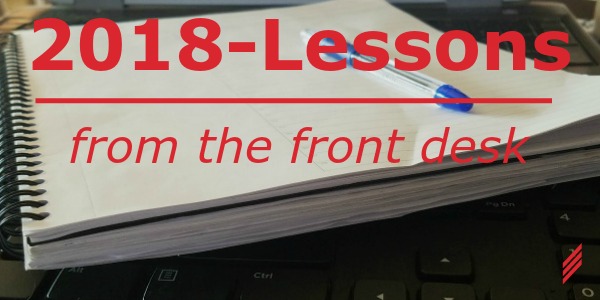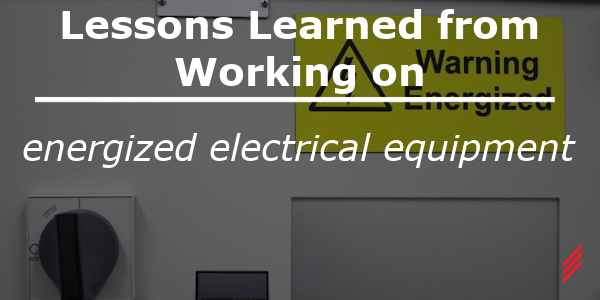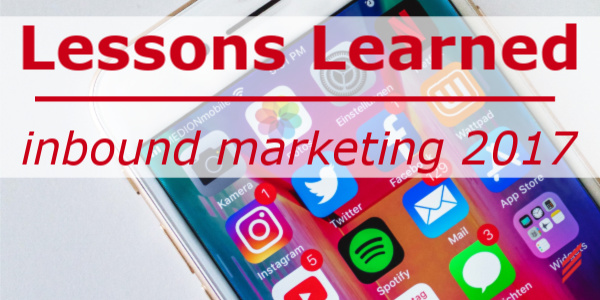Five Lessons from my Engineering Career
by John Butterfield on Mar 23, 2023 10:20:04 AM

My perception of an engineering career started about the time I was in high school. I had visions of smart young engineers, armed with enthusiasm and technical knowledge solving complex problems that would make the world a better place.
I began my career as an engineering intern in the maintenance department of a mining operation. It became immediately obvious that there was much to learn outside of classrooms and textbooks. My first intern assignment was in the welding shop; where the world consisted of two types of people: those that knew how to weld, and those that didn’t. Much to my surprise, the guys in the shop didn’t care if I was a college sophomore studying engineering. As far as they were concerned, I didn’t know the first thing about welding, and that put me at the bottom of the pecking order. The same thing happened in the machine shop, the power plant and the maintenance shop. As I strove to acquire the fundamental skills for these various trades, a light began to go on that there was indeed a world beyond the formal principles of engineering.
Lesson #1: Recognize you own strengths; respect those of others
None of us can be good at everything. We are at our best when we are engaged in work that fits our aptitudes, interests, education and experience. Respect others for things that they know, and you don’t. Others can help you succeed.
This lesson has served me well over the years as my work has involved working closely with operations, maintenance, contractors, tradespeople, vendors, owners; in addition to design, legal and financial professionals.
Lesson #2: Understand your personal “value proposition”
What unique value do you offer through your personal combination of knowledge, skills, aptitude and experience? People will respect you and seek your advice for things that you “are good at”. Your contributions will also help others be successful.
My first full-time job was as a maintenance engineer for yet another mining company. So, what’s a guy with three college degrees doing in a position like that?
I saw many of my co-workers struggling with new technology that the company was implementing. Being a recent engineering graduate, I had a pretty good handle on electronics, controls and power systems. I had been a teaching assistant in college, so I understood how to present complex subjects in a logical and simple way.
I started utilizing my technical background to help others become familiar with the new equipment. The company sent me to several weeks of factory training. My mission was to absorb the factory training, and then “translate” it into bite-size modules that our plant group could work with.
Lesson #3: Never stop learning
Continuous learning and broadening your range of knowledge expands your mental “toolbox”. Our biggest limitation, is “not knowing what we don’t know”.
My Dad graduated with a BS in Mechanical Engineering in the 1930’s. He used to tell the story about his professor who proclaimed that “Everything worthwhile has already been invented, you boys are going to have to figure out how to do something else”. Wow, talk about misconceptions of the future! Looking back at my own studies, I envision knowledge this way:
Fundamental knowledge and principles that create the bedrock for future learning (math, physics, economics, chemistry, English, history). Fortunately for us all, this fundamental knowledge is relatively unchanged over time.
Continuous learning is required to keep up with evolving technology and standards. (Looking back to my high school electronics class: have we designed any electronic vacuum tube circuits lately?)
Leveraging the future through lessons learned from the past. As the saying goes, “Those who do not learn from the past are condemned to repeat it”.
Insight, inspiration, and solutions to problems often come from having a broad knowledge. As engineers we tend to deemphasize (dare I say ignore?) the fields of language, art, music, history, sports and literature. There are some fascinating biographies of people like Leonardo Da Vinci and Steve Jobs that illustrate this point.
Lesson: #4: Communication is your link to the world
Your ability to speak, read, write and listen surpasses your technical knowledge and experience.
Communication is undoubtedly the one skill that has served me best throughout my career. I often mentor and advise students and entry-level professionals, and I stress the importance of communication to them. Without effective communication, each of us is an island unto ourselves.
Before the days of electronic communication (email, texting, Twitter, Facebook, LinkedIn, etc.), there were hard copy memos. Technical people loved memos because, like their electronic counterparts, you didn't have to speak directly to the other person. However, the impact of a miswritten, or misinterpreted communication often resulted in the same unintended consequence as it does in today's electronic world. The only difference was that the response time was a little slower, and one could permanently delete the document by shredding it. Here are some thoughts on communication:
- Effective communication requires understanding your audience and communicating with them in a manner that they can understand and relate to.
- Poor writing casts a shadow on the quality of your work. That misspelled word in a great report that you wrote stands out like spilled food on a clean shirt.
- Face-to-face communication is always more effective than writing. To this day, I would rather walk down the hall to talk to a colleague, rather than email them. The direct contact makes us both feel better, and the little bit of exercise doesn’t hurt me either.
- When you do engage in written communication, think before you send. In the heat of the moment, what you might perceive to be pointed, or humorous; may be taken completely the wrong way by the reader.
Throughout my career (wow, has it really been 50 years?) I have seen incredible changes in technology, codes, standards, practices and social norms. The one constant that we all deal with is people. Which leads me to my final lesson.
Lesson #5: Even in Engineering, it’s not just the technology, it’s really about the people.
About the author
John has retired from Hallam-ICS, but his contributions to the company continue to be valued.
Read My Hallam Story
About Hallam-ICS
Hallam-ICS is an engineering and automation company that designs MEP systems for facilities and plants, engineers control and automation solutions, and ensures safety and regulatory compliance through arc flash studies, commissioning, and validation. Our offices are located in Massachusetts, Connecticut, New York, Vermont and North Carolina and our projects take us world-wide.
You May Also Like
These Related Stories

2018-Lessons from the Front Desk

Lessons Learned from Working on Energized Electrical Equipment



No Comments Yet
Let us know what you think